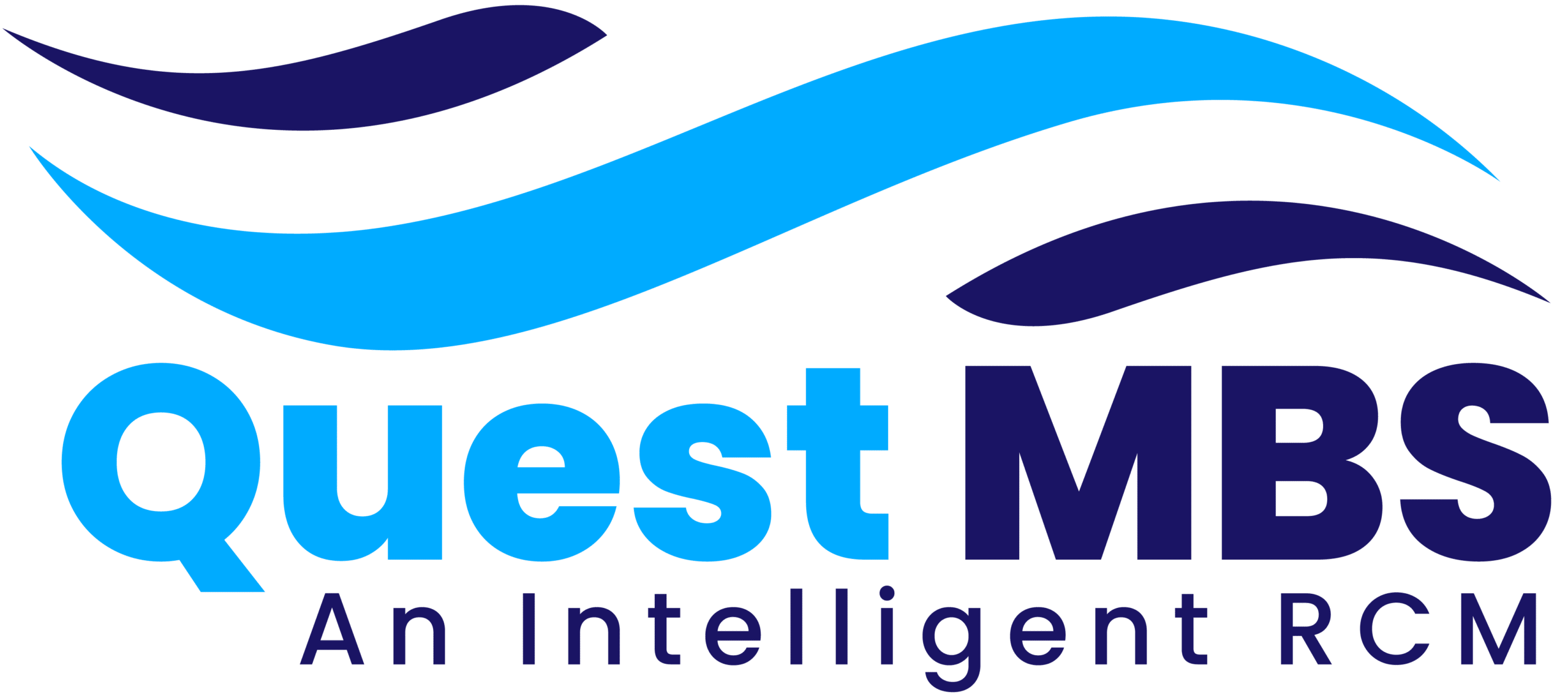Introduction:
Medical billing is a critical component of healthcare administration, ensuring that providers receive proper reimbursement for services rendered. However, managing billing in-house can be complex, time-consuming, and prone to errors. As a result, many healthcare providers are turning to outsourced medical billing services to improve efficiency, reduce costs, and enhance revenue cycle management.
In this article, we will explore the benefits of outsourcing medical billing, how it improves healthcare operations, and why it is a strategic decision for providers looking to streamline their financial processes.
Understanding Medical Billing Outsourcing:
Outsourcing medical billing involves hiring a third-party company to handle billing tasks, including claim submission, coding, insurance verification, payment processing, and accounts receivable management. These specialized firms use advanced software, employ trained professionals, and stay updated with the latest billing regulations to ensure accuracy and compliance.
Medical billing outsourcing is widely used by:
- Hospitals
- Private practices
- Specialty clinics
- Urgent care centers
- Rehabilitation facilities
By outsourcing, healthcare providers can focus on patient care while experts handle the complexities of billing and reimbursement.
Top Benefits of Outsourcing Medical Billing Services:
1. Reduced Administrative Burden:
Handling billing in-house requires significant administrative effort, from verifying patient insurance to processing payments and managing denials. Outsourcing eliminates these burdens, allowing staff to focus on core responsibilities such as patient care, scheduling, and medical records management.
By removing billing-related stress from office staff, healthcare facilities can operate more efficiently and enhance the patient experience.
2. Cost Savings:
One of the biggest advantages of outsourcing medical billing is the reduction in overhead costs. Managing an in-house billing department requires expenses such as:
- Salaries for billing staff
- Training costs
- Software and technology investments
- Office space and equipment
Outsourcing eliminates these expenses, as providers pay a fixed fee or percentage of collections to the billing company. This results in lower operational costs and higher profitability for healthcare practices.
3. Improved Revenue Cycle Management (RCM):
Revenue cycle management (RCM) is the process of tracking patient revenue from initial appointment scheduling to final payment. Outsourcing ensures a more efficient RCM process by:
- Submitting claims promptly
- Reducing claim denials and rejections
- Following up on unpaid claims
- Handling appeals for denied claims
With faster claim processing and reduced errors, healthcare providers experience improved cash flow and higher revenue collection rates.
4. Access to Billing and Coding Experts:
Medical billing requires knowledge of complex coding systems such as:
- ICD-10 (International Classification of Diseases)
- CPT (Current Procedural Terminology)
- HCPCS (Healthcare Common Procedure Coding System)
Billing errors, incorrect codes, or missing information can lead to claim denials and financial losses. Outsourcing companies employ certified billing professionals who ensure accurate coding, compliance with regulations, and proper documentation.
These experts stay updated with changes in insurance policies and medical billing rules, reducing the risk of non-compliance.
5. Faster Claims Processing and Fewer Denials:
One of the primary reasons for delayed payments is claim denials caused by incorrect coding, incomplete patient information, or missing documents. Third-party billing companies use advanced software to:
- Verify insurance eligibility before submitting claims
- Detect and correct errors before claim submission
- Appeal denied claims efficiently
By improving claim accuracy and minimizing denials, providers receive payments faster and maintain steady cash flow.
6. Compliance with Industry Regulations:
Medical billing is subject to strict regulations, including:
- HIPAA (Health Insurance Portability and Accountability Act) – Ensures patient data privacy and security.
- CMS (Centers for Medicare & Medicaid Services) Guidelines – Establishes rules for Medicare and Medicaid billing.
- OIG (Office of Inspector General) Compliance – Prevents fraud and abuse in medical billing.
Outsourcing companies ensure compliance with these regulations, reducing the risk of audits, penalties, and legal issues.
7. Enhanced Patient Satisfaction:
Patients often have questions about billing, insurance coverage, and payment options. A professional billing service provides:
- Transparent billing practices
- Faster claim resolution
- Easy-to-understand statements
- Support for patient billing inquiries
By outsourcing, healthcare providers can enhance patient satisfaction and build trust with their patients.
8. Scalability and Flexibility:
As healthcare practices grow, their billing needs change. Outsourcing allows providers to scale their operations without hiring additional staff or investing in new technology.
- Small practices can benefit from cost-effective billing solutions.
- Large hospitals can manage high claim volumes efficiently.
- Seasonal fluctuations in patient visits do not disrupt the billing process.
Billing companies offer flexible services that adapt to the provider’s needs, ensuring smooth financial management at all times.
9. Increased Focus on Patient Care:
By outsourcing medical billing, healthcare providers can:
- Spend more time with patients
- Reduce administrative distractions
- Improve healthcare quality and outcomes
When doctors and healthcare staff are not overwhelmed with billing tasks, they can concentrate on delivering better care to their patients.
10. 24/7 Support and Data Access:
Outsourced medical billing services provide round-the-clock support and access to billing data. Providers can:
- Monitor financial reports
- Track claim statuses
- Access real-time revenue insights
With cloud-based billing solutions, healthcare professionals can review financial performance anytime, anywhere.
11. Reduced Billing Errors and Fraud Risks:
Billing errors and fraudulent claims can lead to severe financial and legal consequences. Outsourcing companies follow strict auditing procedures to:
- Detect potential billing mistakes
- Prevent duplicate claims
- Ensure ethical billing practices
By maintaining transparency and accuracy, outsourcing reduces fraud risks and safeguards the provider’s reputation.
Challenges of In-House Medical Billing:
Many healthcare providers struggle with in-house billing due to:
- Lack of trained billing staff – Leads to frequent coding mistakes.
- Delays in claim submissions – Results in slow reimbursements.
- High operational costs – Requires constant investment in staff and technology.
- Regulatory changes – Keeping up with new laws is challenging.
- Limited time for patient care – Physicians are burdened with administrative work.
Outsourcing solves these challenges, making medical billing more efficient and cost-effective.
How to Choose the Right Medical Billing Company:
When selecting a billing service provider, consider:
✅ Experience & Reputation – Choose a company with a strong track record in medical billing.
✅ Compliance & Security – Ensure compliance with HIPAA and other healthcare regulations.
✅ Technology & Software – Look for providers with advanced billing systems.
✅ Transparent Pricing – Avoid hidden fees and unclear payment structures.
✅ Customer Support – Ensure 24/7 availability for assistance.
A reliable billing partner can significantly impact the financial health of a healthcare practice.
Conclusion:
Outsourcing medical billing services offers numerous benefits, including cost savings, improved efficiency, faster reimbursements, and compliance with regulations. By partnering with a professional billing service, healthcare providers can focus on delivering quality care while ensuring a steady revenue stream.
With the right outsourcing solution, medical practices can reduce administrative burdens, enhance patient satisfaction, and achieve long-term financial success. As the healthcare industry evolves, outsourcing medical billing remains a smart and strategic choice for providers looking to optimize their operations.







